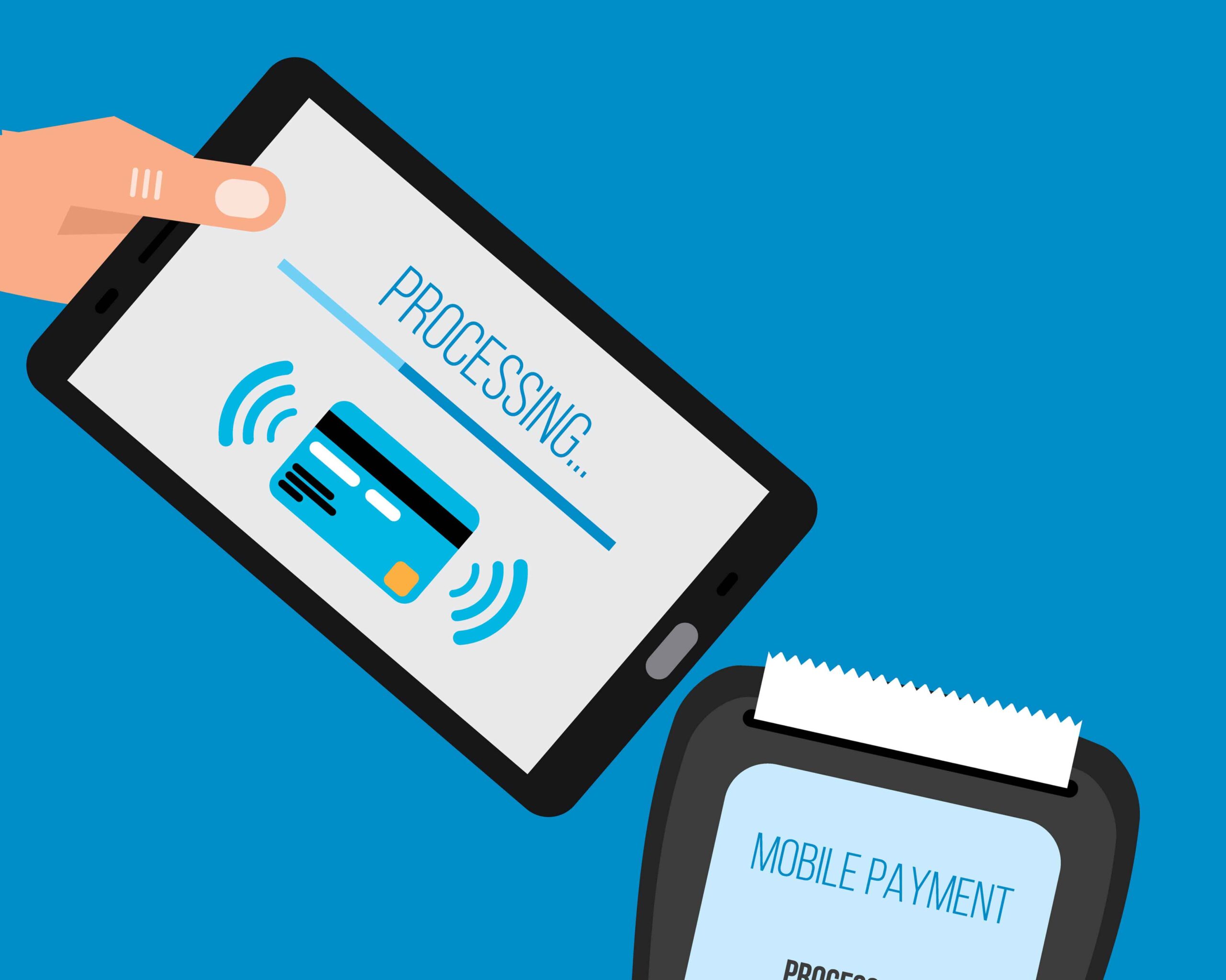Tech
The Rise of Fintech and E-commerce in Kenya: Transforming the Economy
Published
1 year agoon

Kenya has become a frontrunner in Africa’s digital economy, with the fintech and e-commerce sectors being crucial in propelling economic growth and enhancing financial inclusion. The past decade has seen an impressive evolution, driven by pioneering financial technologies and an expanding e-commerce landscape. This article delves into the elements that have contributed to this ascent and examines the effects on Kenya’s economy, underpinned by the latest data and insights from experts.
The Fintech Revolution in Kenya
Kenya is renowned as the cradle of mobile money, owing to the triumph of M-Pesa, introduced by Safaricom in 2007. M-Pesa has evolved into a worldwide model for financial inclusion, granting millions of Kenyans the ability to utilize financial services via their mobile phones. The service provides the capability to transfer and receive funds, settle bills, and obtain microloans, even in the most isolated regions devoid of conventional banking facilities.
M-Pesa’s success has spurred the growth of other fintech solutions in Kenya. The Central Bank of Kenya (CBK) has supported this innovation-friendly environment by implementing regulations that encourage competition and protect consumers. Today, fintech startups in Kenya are offering a wide range of services, including digital lending, insurance, investment platforms, and blockchain-based solutions.
According to a 2023 report by the Central Bank of Kenya, mobile money transactions reached KSh 6.86 trillion ($50.5 billion) in 2022, representing a 15% increase from the previous year. The report also highlighted that the number of mobile money users in Kenya surpassed 35 million, demonstrating the widespread adoption of fintech solutions across the country.
In the past three to four years, several fintech startups have emerged, offering products that feature a ‘decentralized’ approach to money transfer in Kenya and across the African continent, aiming to compete with MPESA and other established mobile money transfer services.
The Growth of E-commerce in Kenya
Parallel to the rise of fintech, Kenya’s e-commerce sector has been experiencing significant growth. The increasing internet penetration, which stood at 42% in 2023, and the proliferation of smartphones have been key drivers of this growth. Kenyans are increasingly turning to online platforms for shopping, driven by convenience, competitive pricing, and a broader range of products.
Platforms like Jumia, Kilimall, and Safaricom’s Masoko have become household names, offering a wide range of products from electronics to fashion. The COVID-19 pandemic further accelerated the shift towards online shopping, as restrictions on movement and social distancing measures made e-commerce a safer and more convenient option.
A 2023 report by the International Trade Centre (ITC) revealed that Kenya’s e-commerce market was valued at KSh 300 billion ($2.2 billion) in 2022, with projections indicating a compound annual growth rate (CAGR) of 16% over the next five years. The report also noted that small and medium-sized enterprises (SMEs) are increasingly leveraging e-commerce platforms to reach new customers and expand their market reach, both locally and internationally.
The Impact on Kenya’s Economy
The emergence of fintech and e-commerce has profoundly influenced Kenya’s economy. Fintech innovations have greatly expanded financial inclusion, evidenced by the World Bank’s report that 82% of Kenyans accessed formal financial services in 2022, a substantial increase from 26.7% in 2006. This expansion has enabled individuals and businesses to engage more fully in the economy, promoting entrepreneurship and contributing to poverty reduction.
E-commerce has created new opportunities for businesses, particularly SMEs, to scale and reach customers beyond their geographic locations. It has also led to job creation in areas such as logistics, digital marketing, and IT support. The sector’s growth is contributing to Kenya’s GDP, with the Kenya National Bureau of Statistics (KNBS) estimating that e-commerce accounted for 1.6% of the country’s GDP in 2022.
Challenges and Future Outlook
Despite the impressive growth, Kenya’s fintech and e-commerce sectors face several challenges. These include regulatory uncertainties, cybersecurity threats, and the need for better infrastructure in rural areas. Additionally, consumer trust remains a critical issue, particularly in e-commerce, where concerns about product quality and online fraud persist.
However, the future looks promising. The Kenyan government has recognized the potential of these sectors and is implementing policies to support their growth. The Digital Economy Blueprint, launched in 2019, outlines strategies to enhance digital infrastructure, improve digital skills, and foster innovation. With continued investment and innovation, Kenya is poised to solidify its position as a leader in Africa’s digital economy.
The emergence of fintech and e-commerce in Kenya is revolutionizing the nation’s economic landscape, fostering financial inclusion, and unlocking new prospects for both businesses and consumers. Backed by a conducive regulatory framework, growing internet accessibility, and an innovative culture, Kenya’s digital economy is poised for sustained expansion. While the path is lined with hurdles, the prospective rewards render it an essential area of concentration for policymakers, investors, and business innovators.
You may like


“Zoza”: A Story of Loyalty, Betrayal, and Redemption


Spotify Has Quietly Hiked Prices in Kenya


A Journey of Self-Discovery: Book Review of Educated by Tara Westover


Infinix’s Hot Launch; The All New Hot 50 Series is Here


Walker Town Presents A Star-Studded Lineup Featuring Lauryn Hill, Nyashinski And Rema


New WhatsApp Feature Lets You Mention Contacts In Status Updates
3 Comments
Leave a Reply
Leave a Reply

Spotify, the worldwide music streaming giant, has unexpectedly raised its subscription prices in Kenya. This change impacts all subscription levels, ranging from the economical Premium Mini to the extensive Family plan.
Spotify has just announced that it will raise the prices across all its subscription tiers in Kenya. This increase reflects how much one will have to pay to access premium features of the music streaming platform, with a new price change that applies to several user plans. This move is part of a wider trend within the streaming industry, where globally, these platforms inflate their prices in response to inflation and increased operational costs. Beginning today, users in Kenya will pay more to listen to their favorite music streaming services as Spotify continues to add more features and music to the platform.
The prices in Kenya have risen by 13.3 percent to 40.8 percent depending on the particular subscription. The wide range shows that some plans only have a moderate adjustment, while others see substantial rises. That is to say, many users are likely reviewing their current subscriptions or their more financially apt tiers. Specific reasons for these particular percentage increases have not been discussed, but this shows the platform’s intention: keeping profitability with competitive services.
Amongst the lot of subscription options, Premium Mini received the highest increase in percentage terms. The plan, previously the most affordable that gave access to Spotify’s premium features for either a day or a week, is now one of the relatively dearer options compared to other tiers. This steep increase may particularly affect users who rely on short-term premium access for occasional use and encourage them to either upgrade to longer-term plans or switch to other streaming platforms.
Here’s a comprehensive look at how Spotify’s prices have changed for Kenyan subscribers:
| Plan | Old Price | New Price | Increase | Percentage Increase |
|---|---|---|---|---|
| Premium Mini (1 week) | KES 49 | KES 69 | KES 20 | 40.8% |
| Premium Individual (monthly) | KES 299 | KES 339 | KES 40 | 13.4% |
| Premium Student (monthly) | KES 149 | KES 169 | KES 20 | 13.4% |
| Premium Duo (monthly) | KES 389 | KES 439 | KES 50 | 12.9% |
| Premium Family (monthly) | KES 479 | KES 549 | KES 70 | 14.6% |
- Premium Mini:The most economical choice experienced the largest percentage rise, at 40.8%. Such a substantial increase could affect users who depend on weekly subscriptions and are mindful of their budgets.
- Premium Individual and Student: Both plans saw a 13.4% increase. Although the absolute increase for students is smaller, the percentage rise is the same as that of the individual plan.
- Premium Duo:This couples’ plan experienced the smallest percentage increase at 12.9%, potentially rendering it a more appealing option for couples aiming to save.
- Premium Family: The price of the most expensive plan rose by 14.6%, potentially impacting households dependent on shared accounts.
For individuals seeking to optimize value, the Duo and Family plans may provide greater cost-effectiveness for those who are eligible. Students are advised to keep their verification current to maintain access to reduced rates.
Tech
Infinix’s Hot Launch; The All New Hot 50 Series is Here
Published
1 year agoon
September 27, 2024
Over the last couple of months, Infinix has been making waves in the smartphone market, and their recent attempt at solidifying this move looks set to serve Kenyan consumers as the smartphone manufacturer launches their latest series of budget-friendly gadgets, and oh are they something.
The newly launched budget phone is the Infinix Hot 50i with functional elements users on a tight budget will find quite appealing. The budget-friendly market is where real competition exists if you ask me. Here’s whats on paper so far.
Infinix Hot 50i

The Infinix Hot 50i, part of the same Hot 50 series, brings its own set of features, which is powered by the MediaTek Helio G81, which is paired with 4GB of RAM.
However, this RAM can be expanded to 8GB, providing users with more flexibility depending on their usage requirements. This model offers similar performance in day-to-day tasks but at a more affordable price point.
Infinix Hot 50i Specs
- Display: A large 6.7-inch IPS display with a resolution of 720 x 1600 pixels and 120Hz refresh rate.
- Processor: Powered by the MediaTek Helio G81 processor, for smooth performance for everyday tasks and gaming.
- RAM and Storage: Available in configurations of 4GB or 6GB RAM, which can be virtually extended up to 8GB. The device also boasts a generous internal storage capacity of 256GB.
- Camera System: 48MP rear camera and an 8MP front camera for selfies.
- Battery Life: 5000mAh battery that supports 18W fast charging.
- Audio: Dual DTS speakers designed to enhance sound quality, making it ideal for music lovers and media consumers.
- Operating System: Runs on XOS based on Android 14, providing a user-friendly interface with various customization options.
- Additional Features: A side-mounted fingerprint sensor for security, a USB Type-C charging port, and TÜV’s 48-month performance certification for long-term reliability.
Infinix Hot 50i Pricing
The Hot 50i is available in the Kenyan market at a price of KES 13,699, making it an attractive option for those looking for an affordable, yet capable smartphone.
The phone comes three attractive color options: Sleek Black, Sage Green, and Titanium Grey.
It will be widely available in retail stores after September 30th. Stay tuned to watch us review these units and give you a hands-on review of whether this should be your next phone or why not.
Tech
New WhatsApp Feature Lets You Mention Contacts In Status Updates
Published
1 year agoon
September 19, 2024
WhatsApp has recently added a new feature to its Status updates, allowing users to tag contacts directly.

Currently available on Android for users with beta version 2.24.20.3 or higher, this update introduces a @ button that lets you mention specific contacts in your Status.
Once tagged, they receive both a notification and a message, ensuring they won’t miss your update. Tagged contacts can also reshare your Status, but only they will see their mention, preserving privacy.
Unlike Instagram, WhatsApp keeps the identity of the original Status creator hidden when tagged contacts reshare it. One key thing to note is that if you’ve blocked someone from viewing your Status, they can still see it if tagged using this feature.
This update, along with WhatsApp’s other hidden features, aims to make interactions more personal and dynamic on the platform.

Meghan Markle Delays Netflix Series Premiere Due To LA Wildfires

Satire Meets Culture On New Comedy Series ‘A Very Kenyan Sketch Show’

Netflix Set To Debut A Gripping Kenyan Drama Series ‘Mo-Faya’
Trending

 Adulting 1013 years ago
Adulting 1013 years agoPersonal Brand Online (Part 2)

 A Chat With3 years ago
A Chat With3 years agoA chat with DJ Elye (the sunday skool drop out)

 Adulting 1013 years ago
Adulting 1013 years agoPersonal Branding (Part 1)

 A Chat With5 years ago
A Chat With5 years agoA MOMENT WITH SHARON WENDO, FOUNDER OF EPICA JEWELLERY

 Health1 year ago
Health1 year agoLet’s Get Mind, Body and Spirit Aligned!

 Adulting 1011 year ago
Adulting 1011 year agoRediscovering Yourself Through Solo Travel: The Mental Health Benefits of Venturing Alone

 Entertainment3 years ago
Entertainment3 years agoKenyan Movie Disconnect: The Wedding Planner Is Now Streaming On Netflix

 A Chat With3 years ago
A Chat With3 years agoFind out why ‘mutura is not a street food’ as Wanjira Puts it!

































https://yv6bg.mssg.me
August 26, 2025 at 9:40 am
You have made some decent points there. I looked on thhe internet
to find out more about the issue and found
mot people will goo along with your views on this website. https://yv6bg.mssg.me
mind vault
October 13, 2025 at 10:59 pm
**mind vault**
mind vault is a premium cognitive support formula created for adults 45+. It’s thoughtfully designed to help maintain clear thinking
aaajili7
December 12, 2025 at 1:11 am
Aaajili7… same same, but different. Similar gameplay to the others, but hey, different vibes! Worth a look. Try your luck here: aaajili7